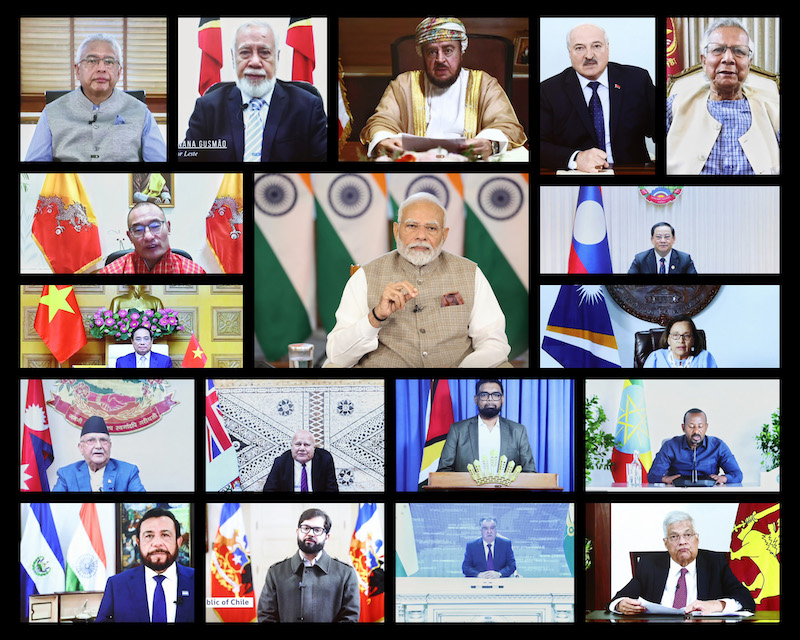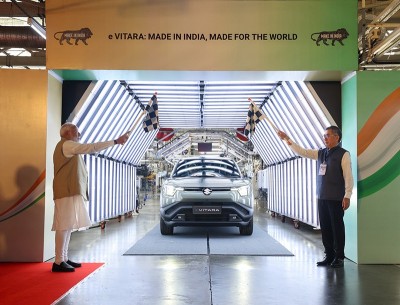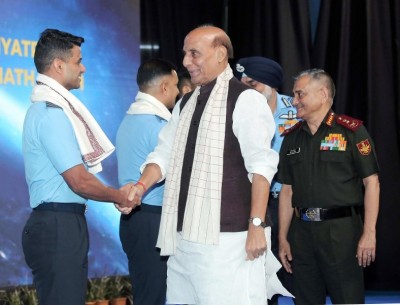 Global South
Global South
Global South Cooperation: Development Compact should be central to the Pact of the Future
Aspirations of the Global South are challenged by growing uncertainties in the world. Prime Minister Narendra Modi in his opening remarks at the third Voice of the Global South Summit has minced no words to stand strongly in solidarity with the Global South to amplify their ‘Voice’ as inequalities grow and ravaging wars spread. The impact of the Covid-19 pandemic is still being felt across the Global South with worsening realities of climate change challenges.
As is well acknowledged, India played a critical role in initiating the process of the Voice of Global South Summit with leaders of the Global South during Indian G20 presidency in 2023 with two editions of the Summit being held in 2023 and the third commenced today with the opening remarks of the Prime Minister.
Between 2023 and 2024 the world has slid further behind when it comes to global turmoil, geopolitical conflicts and regional instabilities. Global South, which was emerging as the key driver of the world economy, is again in the throes of deeper development deprivations bearing unequal burden of climate change challenges, health and food insecurities and inadequate means to undertake meaningful measures towards sustainable transitions.
Therefore the third convening of the Summit deserves all praise given its timing and the success in terms of aligning all leaders of the Global South on a single platform with significant presence of our neighbours in South Asia and Indian Ocean and key stakeholders from the Africa and the Pacific Island countries with whom India shares a special bond.
As reiterated by the PM, India made hopes, aspirations and priorities of the Global South the template for its G20 Presidency last year starting with permanent membership of the African Union to generating greater global momentum on inclusive development, reforms of global financial architecture, MDB reforms and accelerating the SDGs based on India’s own experience of digital public infrastructure, women led development and Mission LiFE.
(What is Global South: According to UN Trade and Development (UNCTAD), the Global South broadly comprises Africa, Latin America and the Caribbean, Asia (excluding Israel, Japan, and South Korea), and Oceania (excluding Australia and New Zealand). Most of the Global South's countries are commonly identified as having lower incomes, high levels of poverty, high population growth rates, inadequate housing, limited educational opportunities, and deficient health systems, among other issues. Additionally, these countries' cities are characterized by their poor infrastructure.)
Today, PM announced financial commitments by India towards new initiatives on trade promotion (2.5 million USD) and capacity building on trade policy (1 million USD) in the Global South and reaffirmed the social impact fund for DPI implementation in the Global South (25 million USD).
We may recall that the G20 2023 Action Plan on Accelerating Progress on the SDGs and the High-Level Principles on Lifestyles for Sustainable Development (LiFE) agreed during the Indian G20 Presidency are comprehensive and complementary frameworks that incorporate all policy levers on global cooperation that are in favour of the Global South.
These address intertwined issues of development and sustainability and would support development programmes, flow of resources, capacity building and knowledge sharing in the Global South.
The 3rd Voice of the Global South Summit aspires to chart a unique paradigm for Global South with priorities for one health, youth engagement, trade for development, digital public infrastructure, people-centric approach to finance, sustainable energy solutions, human resource development and climate change from the perspective of the Global South.
Before the G20 Leaders meet in Rio, Brazil in November, world leaders are also expected to join the Summit of the Future on the sidelines of the UN General Assembly in September in New York. These are important occasions where key decisions would be made. The Summit of the Future has identified several conventional and unconventional future threats that might affect humanity as an outcome of complex interrelated crises and calls for systemic preparedness.
In his opening and closing remarks today Prime Minister time and again called for making Global South a top priority in the Pact for the Future. This entails, in his words launching a major ‘Global Development Compact’ (a theoretical construct of South-South cooperation instead of North-South with conditionalities of the recipient country) which would be a transformative approach to partnership that would also bind the Global South in their efforts to support each other primarily in leveraging trade for development, project specific concessional finance, grants, capacity building for sustainable growth, and technology sharing is a harmonious manner.
Hence the power and potential of ‘development compact’ should adequately drive the Pact of the Future towards greater horizontality in partnership and fuller recognition of development needs in the Global South.
This would unleash new processes where global takes care of the local, and create spaces for unorthodox approaches enabling sustainable and equitable development that starts with access to means of implementation and new design for sustainable development that is based on traditional knowledge, sustainable lifestyles and societal learnings of the Global South.
India’s leadership and commitments towards the Global South has been a consistent feature of its foreign policy in recent years with efforts towards creating global public goods.
This has even surpassed the glamour and visibility of high volume engagements with the Global North where space for strategic and economic gains have remained constrained in the face of unwarranted escalations in conflicts and hopeless attempts to cling on to the status-quo which is not aligned with the aspirations of the Global South.
This frustration unites the Global South as they are at the receiving end and crucial time for collective development is lost in conveying the genuine concerns of the Global South to which key global institutions have also remained unresponsive and polarised.
The UN as a true multilateral forum must not let Summit of the Future go the same direction and allow the voice of the Global South reverberate leading to an effective Pact of the Future solidly based on principles and priorities of ‘development compact’ as articulated by the Prime Minister.
(Dr. Sabyasachi Saha is Associate Professor at the Research and Information System for Developing Countries (RIS), New Delhi. He specialises in innovation economics, trade and technology, international trade, technology and development policy.)
Support Our Journalism
We cannot do without you.. your contribution supports unbiased journalism
IBNS is not driven by any ism- not wokeism, not racism, not skewed secularism, not hyper right-wing or left liberal ideals, nor by any hardline religious beliefs or hyper nationalism. We want to serve you good old objective news, as they are. We do not judge or preach. We let people decide for themselves. We only try to present factual and well-sourced news.







